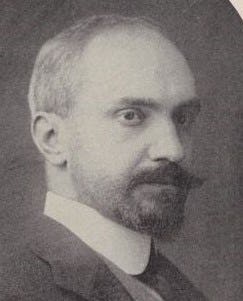Look, in the early light,
Down to the infinite
Depths at the deep grass-roots;
Where the sun shoots
In golden veins, as looking through
A dear pool one sees it do;
Where campion drifts
Its bladders, iris-brinded, through the rifts
Of rising, falling seed
That the winds lightly scour—
Down to the matted earth where over
And over again crow’s-foot and clover
And pink bindweed
Dimly, steadily flower.
This poem is in the public domain.
Michael Field was a pseudonym used for the poetry and verse drama of the English authors Katherine Harris Bradley (1846 – 1914) and her niece and ward Edith Emma Cooper (1862 – 1913). As Field they wrote around 40 works together, and a long journal Works and Days. Their intention was to keep the pen-name secret, but it became public knowledge, not long after they had confided in their friend Robert Browning








.jpg?fit=crop&w=280&h=280&q=93)











 - Copy.jpg?fit=crop&w=280&h=280&q=93)














